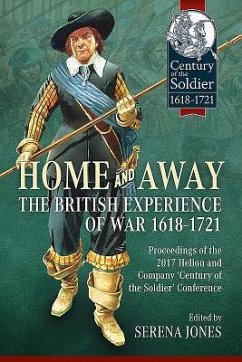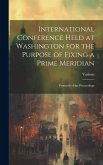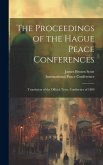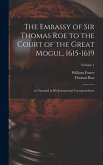The experience of war is never confined to those who participate militarily: the consequences of warfare ripple out across their immediate families and communities, and the lives of countless civilians the combatants will never meet. The wives and children of soldiers could become destitute in the absence of their menfolk, and in the seventeenth century many sought refuge far from their homes or followed the army on its travels. Feeding and clothing an army, and supplying it with ammunition and other materiel, was a critical business; many women, and also many civilian men, provided services to the army baggage train and effectively became a critical part of its supply chain. The speakers at Helion¿s third English Civil War conference focussed on a variety of aspects relating to both the personal experiences of warfare and the herculean efforts required to keep a conflict going.Keynote speaker Professor Peter Gaunt, focusing on the English Civil Wars of the 1640s, explores what is arguably the most gruelling and uncertain aspect of warfare, besides battle itself: the necessity of travel, often for great distances and to unfamiliar or even hostile places. Using case studies focusing on different parts of the country, Professor Gaunt draws upon surviving letters and printed or archival first person accounts to recount and analyse the experience of moving around during the wars, whether to pursue their objectives or to flee from their effects. The Lostwithiel campaign in Cornwall in 1644 took both King Charles¿s and the Parliament¿s armies on a lengthy trek to the furthest extent of England: Simon Marsh examines the disastrous consequences of the campaign on the Earl of Essex¿s army, nearly destroyed as a fighting force, and yet how within two months it was able to recover and fight with distinction against the King¿s forces at the Second Battle of Newbury. Mr Marsh also examines how effective the Parliamentarian supply system had become by 1644; logistics are critical to the survival of any army or any body of people in a defensive situation, and Rachael Abbiss takes us forward to the Indian War of 1688, to remind us that whilst the British Isles only underwent short periods of internal warfare, its colonies in North America permanently required armed defence and the vast cross-ocean administration that entailed. Given the comparatively small European populations in the colonies at the time, and the continual threat from both hostile locals and European colonial rivals such as France, warfare was no distant event but a daily issue of personal survival; back in England, however, the necessity of soldiering for your country was perhaps not felt as keenly, and many men avoided it: Stephen Ede-Borrett¿s paper examines deserters¿ notices in the London Gazette in the 1660s¿1690s, published by the authorities in an attempt to retrieve missing recruits. These advertisements give us an extraordinary amount of information about the men who made up the rank and file of the British Army at the time. Where men did see out their service, however, their families had to decide whether to follow the army or remain at home: using archival evidence, Laurence Spring looks at the experience of soldiers¿ wives in Britain and Europe during the first half of the seventeenth century, both those who stayed, and those who took to the road. War affected great households as much as the small: Basing House, a substantial house belonging to the Royalist Marquess of Winchester, was extensively besieged and eventually destroyed.Alan Turton, who lives adjacent to the house¿s remains, brings together a range of sources including recent archaeological investigations, to offer a fresh picture of wartime events at this magnificent but doomed location. While Basing¿s defenders fought to save it, the London authorities encircled the City and suburbs with fortifications: these works, and many others in England and abroad, were recorded in details for posterity thanks to the extraordinary talent of occasional London resident Wenceslaus Hollar.David Flintham explores the life and works of this prodigious Czech sketcher and engraver. Defending entire regions was not as simple as building walls, however, and Jon Day takes us to Ireland with an account of how the devout lawyer, soldier, and eventual Bishop Michael Jones ruthlessly helped put down the remnants of the Royalist cause in Ireland in 1647¿1649.
Hinweis: Dieser Artikel kann nur an eine deutsche Lieferadresse ausgeliefert werden.
Hinweis: Dieser Artikel kann nur an eine deutsche Lieferadresse ausgeliefert werden.








